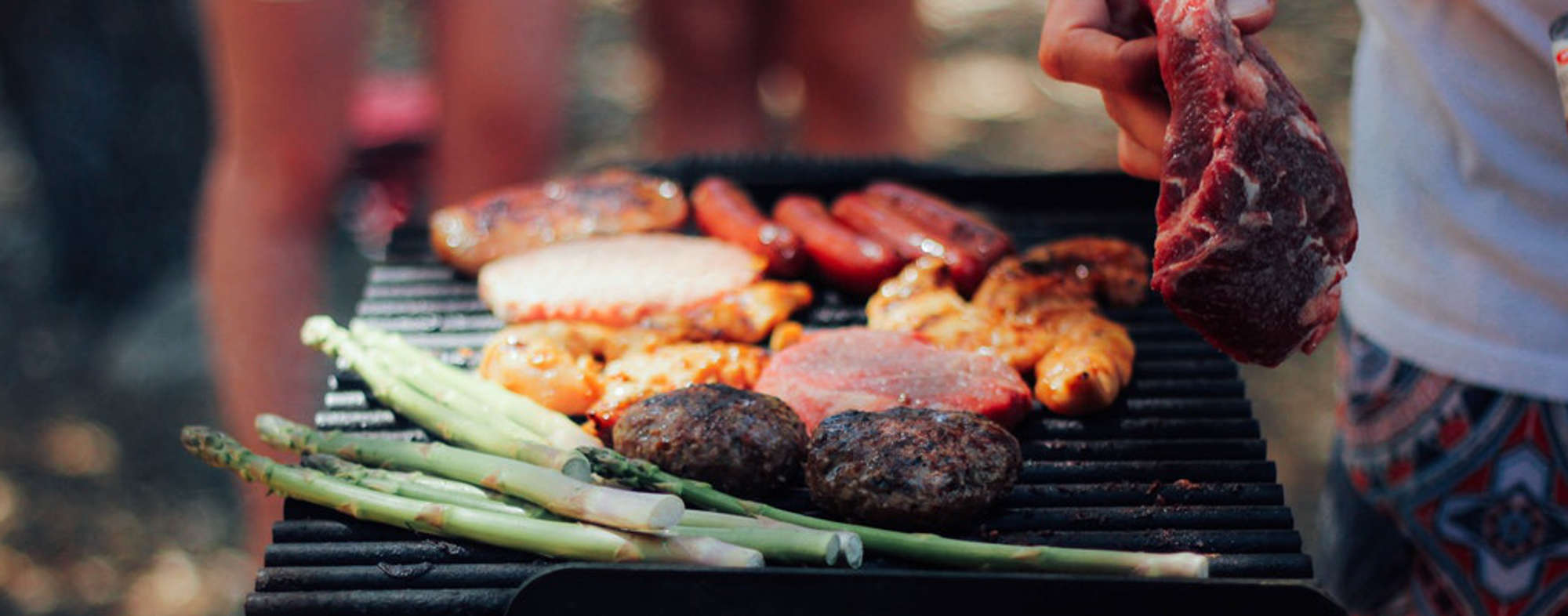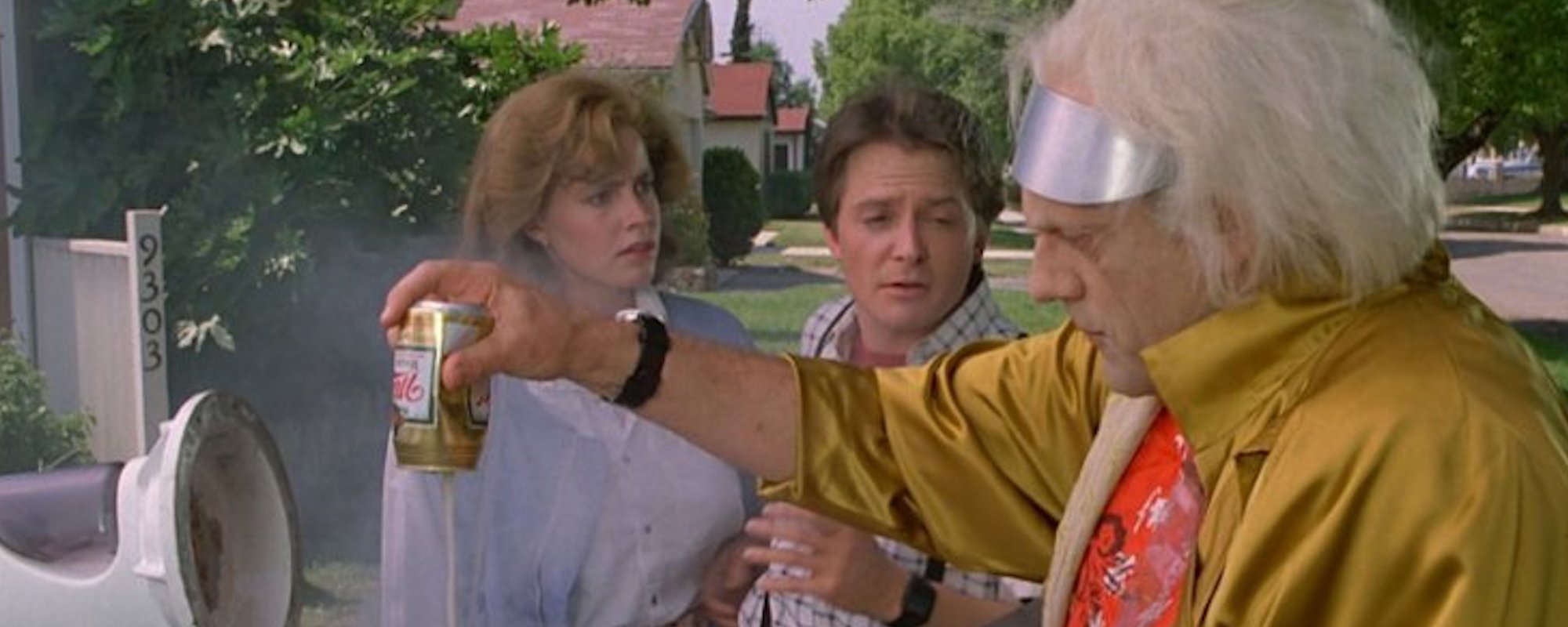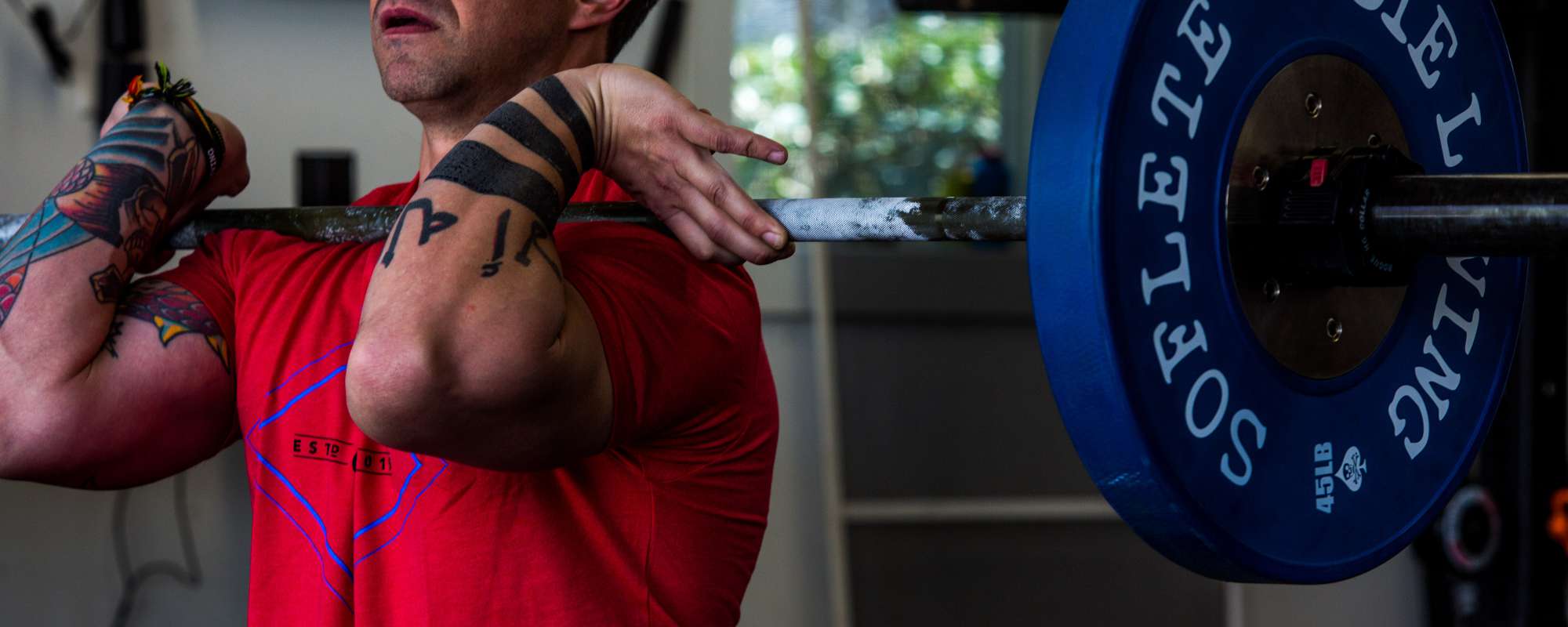Get Your Ass in the Kitchen
Every week we receive a number of questions that essentially ask the same 2 things: Will your program allow me to build lean muscle mass? And, will your program help me to lose weight? Here is the official answer.
Yes. No. Maybe.
If you’re thinking that sounds like a load of bullshit, it’s because you determine the answer. No, we aren’t old ninja masters speaking in riddles that you will decipher in your darkest hour, right before the storyline of your life reaches it’s exciting climax. We are, however, guys that know from experience that programming is only part of what will dictate your body composition changes. In fact, it isn’t always the biggest determining or limiting factor.
Remember the old adage, “you are what you eat”? You’re probably used to thinking about it only in a negative context. Well guess what? It doesn’t just apply to jalapeño poppers, cheese zingers and stinky pussy. It applies to #gainz as well.
Your body composition and performance are heavily influenced by what you eat. The key factors are going to be:
1. What are you putting in your body?
2. How much of it are you putting into your body?
3. When are you putting it into your body?
For the sake of simplicity we can narrow diet programs down to two different types. The first is focused on building mass, and the second is focused on getting lean. You can, no shit, do both of these on the exact same fitness plan, although it is very difficult to do them at the same time without the help of a foreign veterinary medical supplier. This is a fact, I promise you.

Building Mass
Let’s focus first on putting on mass, because frankly that’s a lot more fun. In order to pack on muscle, you need to gain weight. What do you think is the best way to gain weight? That’s right, you need to eat.
Personally, I’m what you would call a “hard gainer.” I have a background in endurance sports and events, oddly enough. I’ve competed in races lasting 12 hours, but I’ve also raced in sprints as well. I have a pretty lanky frame at 6’2” and 206 lbs, and getting up in weight takes work - both in the gym and the kitchen. This means it’s easy as hell when it comes to cutting, but getting up in weight means eating until I’m WAY past full for about 4 meals a day. I’ve heard of every secret and super food in the book, but at the end of the day only one thing works: caloric volume.
I need to eat a TON to pack on weight, and if gaining weight is your goal you should be doing the same thing. Go ahead, take a second and look at what some of the top strongmen eat to keep their bodies fueled. Seriously, google that shit and prepare to be amazed.
A recent study discussed in Outside Magazine showed that you don’t need supplements post-workout, and it is somewhat true. What you do need after a workout is carbs, protein, amino acids, fats, and some creatine. The beauty of supplements is the simplicity, access, and price. What you can get in a scoop of a post-workout shake costs about $2-$4 depending on the brand you choose. It also takes a couple minutes to make a post workout shake or even less to grab a bar, whereas making or buying a cheeseburger will be much more time consuming. I don’t know about the rest of you, but my day is pretty packed and having a meal in a tub makes my life much easier. However, you can’t eat ALL of your meals in a protein shaker. So for the hard gainers, I’ll give you my ideal bulking day.
7am: Wakeup, slam a glass of water, start breakfast and brew some coffee.
8am: Eat breakfast- 4 eggs with cheese, half an avocado, a bagel with cream cheese, four pieces of bacon, and a cup of joe. Prepare a to-go cup of espresso for my pre-workout drive to the gym and drink it.
9am: Strength workout. (I do the metcon in the afternoon.)
10:30am: Protein shake consisting of 25g protein, a heaping scoop of peanut butter, 5g creatine, and more coffee.
12:30pm: Lunch- 2 cups rice, a pound of beef, another half of an avocado, salsa, and some cheese.
3:00pm: Metcon and the same protein shake as before.
5pm: Dinner similar to lunch, but twice the size.
8pm: Another protein shake.
10pm: Bedtime.
Now, you’re probably reading this and thinking, “dude, who the fuck has this life?” The answer is that most people don’t. That’s why it’s my ideal day. With a calorie intake similar to this I’m packing on muscle mass (and some fat) pretty well. Don’t worry about putting on fat right now.
Being a hard gainer means that it’s super easy to get cut. All you have to do is think about doing a couple met cons, cut carbs for a meal, and you’ll have a six pack.
The point is that if you are looking to gain mass you need to EAT. If you see some guy who is trying to get cut, take his food and eat that. When your girlfriend wants chocolate because she’s PMS’ing, go buy her some and eat it. Take candy from a baby and eat that too. Find the Easter Bunny, grind his ass into a meat sauce that you slather over a huge plate of pasta, and then devour his cache of chocolate. Whatever you do, just EAT. Get loads of carbs, fats, and protein in your body. Don’t try sticking to a paleo/Atkins/flavor of the week diet, which will make getting enough calories very difficult. Indulge yourself and eat your damned face off.
But Doc, what about my #gainz

Getting Lean
Unfortunately for most people, their bodies aren’t a Mr Fusion powered time traveling DeLorean that's fueled on cheeseburgers, state fair food-on-a-stick, and raw cookie dough. Odds are that you’re one of these people, and even if you’re currently a hard gainer, odds are that you won’t be one forever. For regular people, calibrating nutrition with training is the only way that body composition goals will ever be achieved.
A good friend who is a semi-pro cyclist likes to say “strength is found in the gym, weight is lost in the kitchen.” Another way to say this is that you can’t out-train a bad diet. If you’re looking to lose weight, or lean yourself out after a glorious bulking phase, you’ll need to pay attention to what you eat.
There is a ton of information out there on weight loss and nutrition. Both are incredibly complex subjects. Serious nutritionists spend years learning the science behind their discipline, so it would be naive to think we could even cover the tip of the iceberg in this short post. The good news is that a basic understanding of weight loss and general nutrition doesn’t have to be complex, especially when you’re just starting to make positive changes.
As mentioned above, your body composition changes mainly come down to what you eat, how much of it you eat, and when you eat it. If you follow a few simple rules, you are going to see positive changes. It’s only once you’ve made a lot of progress and the rate of body composition change slows or stalls that you may need to begin to learn more about the intricacies of nutrition and the different protein chains, enzymes and hormones that affect how your body processes food. By that point, you will probably have learned a lot just from your own experiences.
Getting lean doesn't mean a break from the weights. You can return those pink 3 lb dumbbells.

Michael Pollan said, “Eat real food. Mostly Plants. Not too much.” Don’t discount this as some wonky hippie vegan advice. It’s profound in the way it has distilled a complex subject into such a simple and concise message. If you want to lose weight or lean out, you’ll need to eat fewer calories than you burn, and you’ll have to help your body to run efficiently on it’s store of fat. In general, stick to the rule that real food is superior to food based supplements, which are superior to all other supplements.
In the continued effort of keeping this very simple, try eating foods that don’t come in packages. At each meal, eat a fist sized portion of protein with as many green veggies as you want. Aside from helping to load your body with tons of healthy nutrients and natural fiber, veggies will help you eat more slowly, chew more, and take up stomach space. This will greatly help to reduce hunger and increase the feeling of satiety.
If you’re craving carbohydrates, eat those in the morning or right after your workout, and limit them to things like sweet potatoes, rice that’s been cooked and cooled, and steel cut oats. Try to get most of your fat in the evening, and from natural sources like meat, cold pressed oils, and foods like avocados and nuts. Remember that fat is always 9 calories per gram, no matter what the source. Overdoing the fat intake through nuts and oils is one of the ways that people often unknowingly sabotage their weight loss efforts.
Although it can be a hot button topic, intermittent fasting has been successfully used for weight loss and leaning out by many well respected trainers, like Mark Twight at Gym Jones. Without getting into the intricacies of the general hormone and protein changes that make fasting a successful strategy, training in a fasted state as well as limiting your food intake to an 8 hour window starting at or after noon, should help accelerate your body’s acclimation to using fat as a fuel source. The idea behind this strategy is to stack all of the hormonal cards in your favor.
With intermittent fasting, your meals will fall between noon and 8 pm, and your workout will immediately precede your first meal of the day. Most people don’t have the luxury of a late morning workout, so early morning workouts are a close second choice. This plan doesn’t suit everyone’s lifestyle or temperament, which is perhaps it’s biggest drawback.
You don't have to be able to do this to get benefits from Yoga.

There is yet another catch to all of this. Our bodies are highly reactive to stress. Stress isn't just playing hand grenade hot potato with Terry Taliban. Stress is any taxing event on the body, both physical and mental. Lifting is a physical stress, and is one of the reasons that recovery is so important.
One of the easiest ways to either help or sabotage weight loss efforts is to lower or counteract the amount of stress in your life. Do this by making sure you are getting enough sleep (8 hours or more), drinking 3 liters of water per day, taking a long walk whenever possible, and are clearing your mind through mental relaxation techniques like yoga and meditation. You don’t need to get yourself a singing bowl and a sustainable wood incense holder to reap the benefits of meditation, which is being shown to have huge impacts on both mental and physical health. In fact, you’ll probably be surprised at how difficult it is to sit still for three minutes and attempt to clear all thoughts from your mind as you focus only on breathing.
Our goal at SOFLETE is to help you become stronger, faster, and smarter. Whatever path you take towards these goals, nutrition will be a key factor in your failure or success. Many physical aspects of our lives and our bodies are not under our control They are the direct results of our genetics and are essentially the hand we have been dealt in life. Fortunately, we get to control what we put into our bodies and the work we do with them. If you’re looking to lean out, don’t go crazy with ideas of depravity. Be smart and literally steer your body in the right direction. If you’re a hard gainer looking to pack on muscle, eat like a horse and work hard enough to know that you deserve it.





